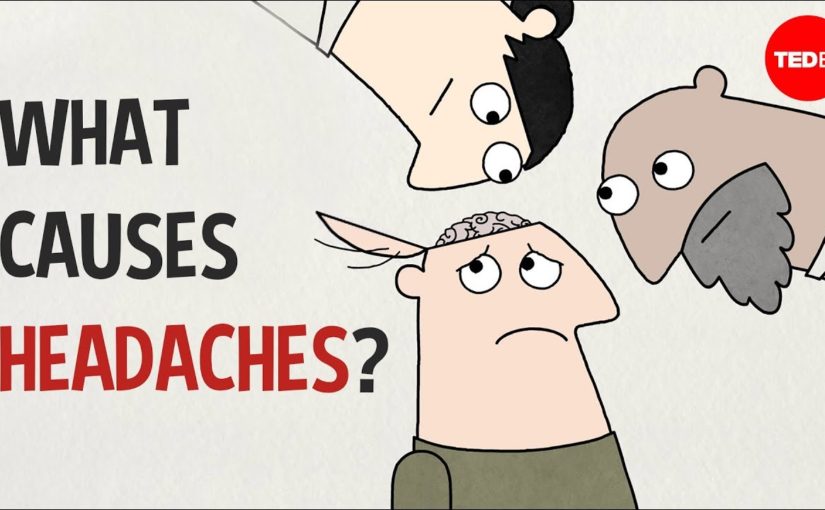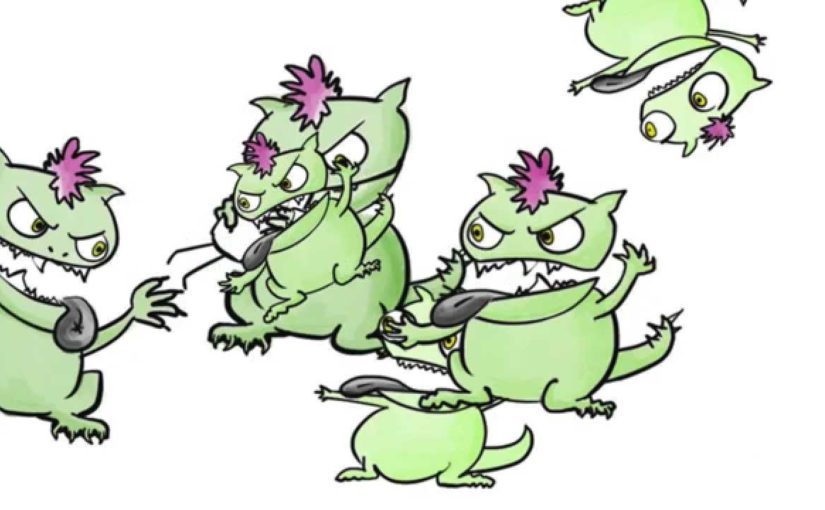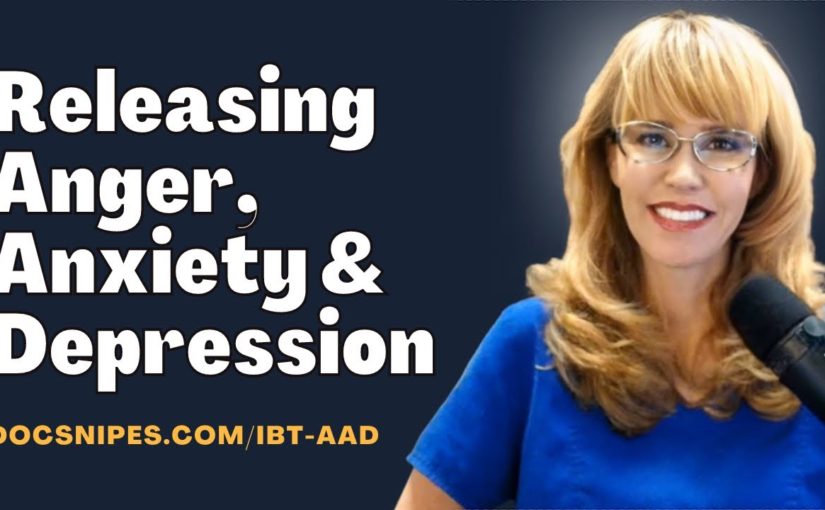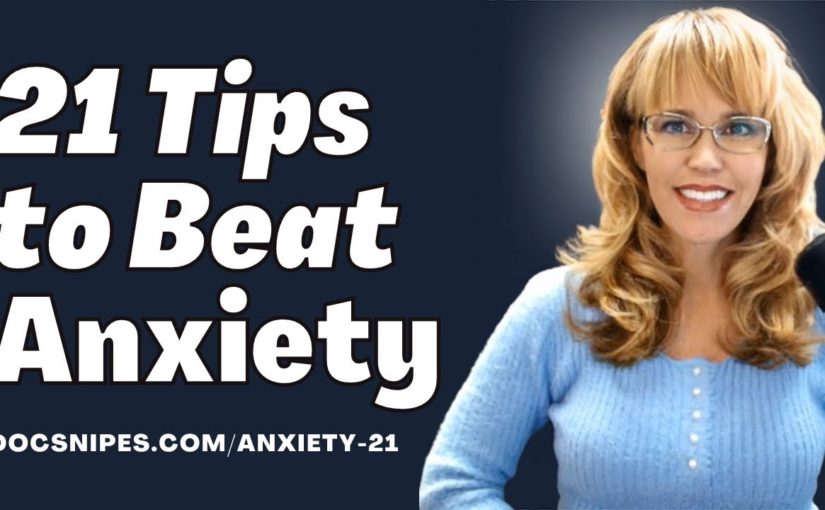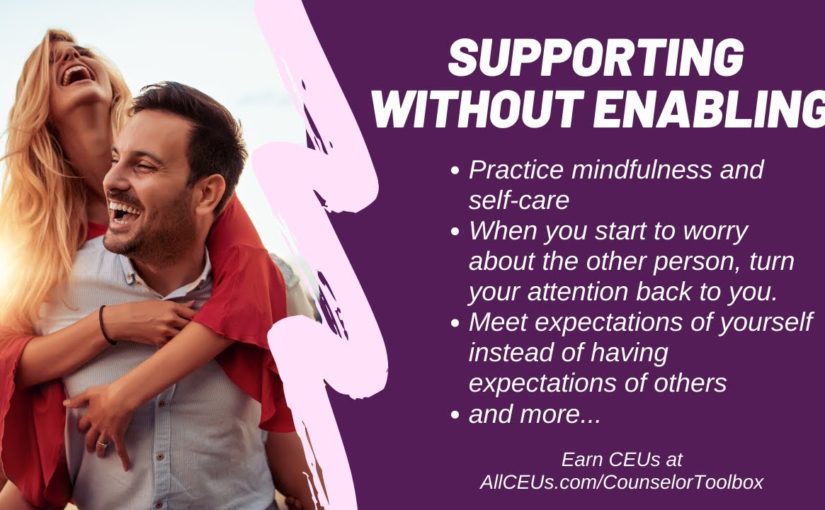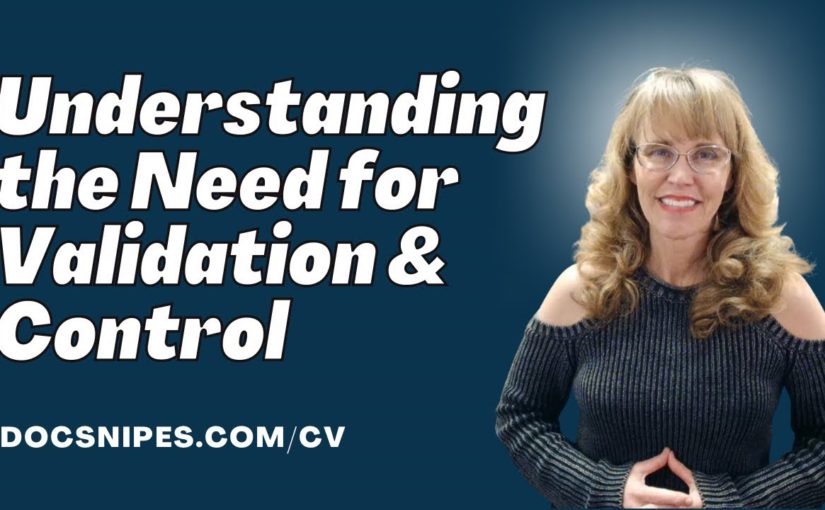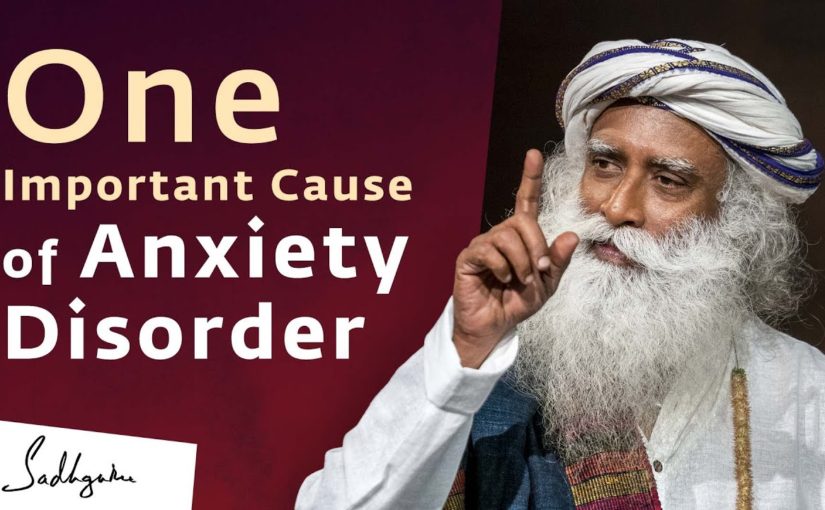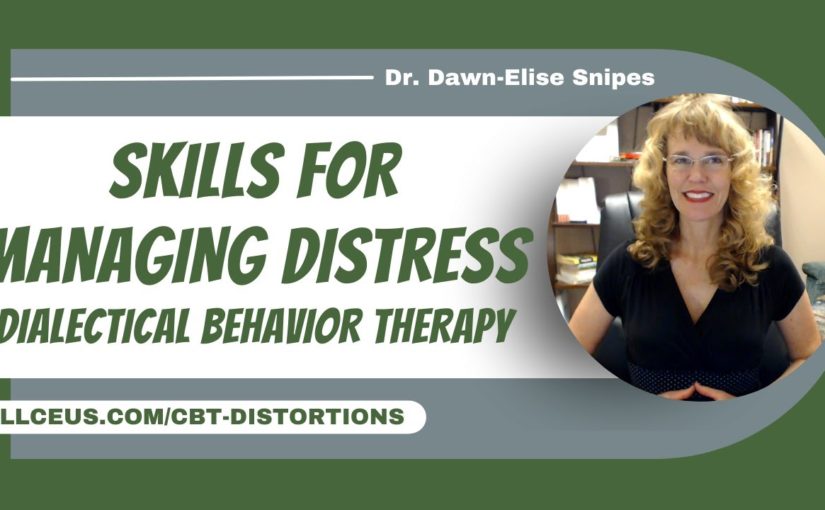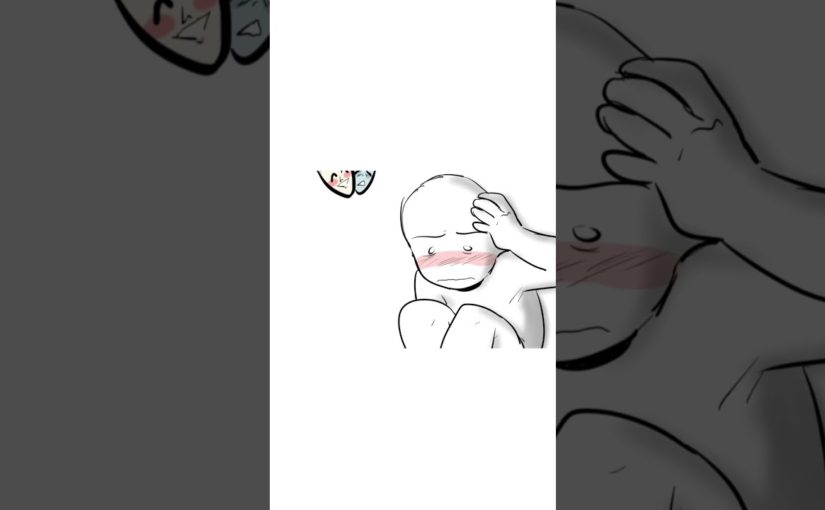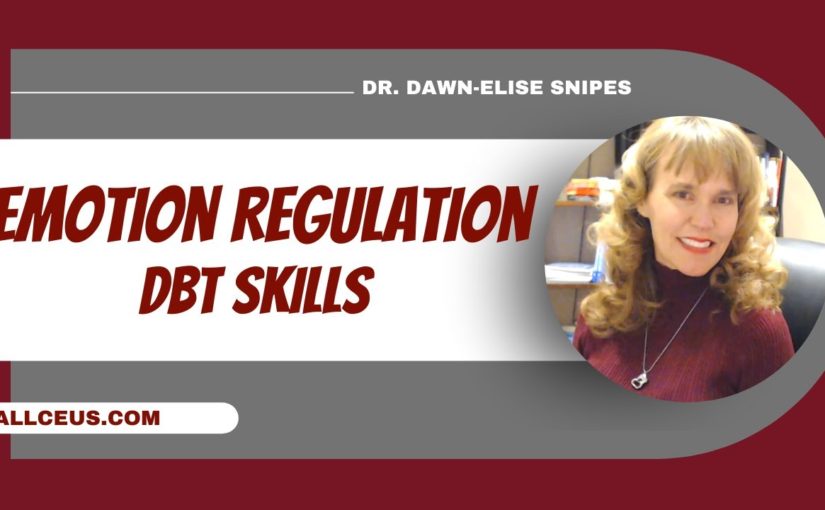https://www.youtube.com/watch?v=r8PUYdEa5PE
00:00:10This episode was pre-recorded as part of a live continuing education webinar on demand CEUs are still available for this presentation through all CEUs register at all CEUs comm slash counselor toolbox
00:00:28all righty I’d like to welcome everybody to today’s presentation on supporting the person without enabling now you notice I said person not patient and hopefully I’ll remember to say that throughout because enabling isn’t just
00:00:40something that people who are in a relationship with someone who is addicted to something can do I mean we can eight we can enable our children we can enable our friends so we’re gonna look at enabling broadly and in this
00:00:56presentation we’ll explore how a person becomes an enabler defined enabling examine the consequences of enabling learn about the connection between enabling and codependency defined characteristics of
00:01:10codependency and how they may develop from being in an enabling relationship and examine practical strategies to provide support and encouragement to the loved one without enabling so what makes an enabler a person that you love is in
00:01:28trouble or experiencing pain and this can be an addicted person you know that’s typically what we think of when we think of enabling it can be a person with a mental health issue so if somebody is clinically depressed or has
00:01:41severe generalized anxiety disorder and enabler may step in and try to care take that person and we’ll talk about you know where you cross the line there a person with chronic pain can also be enabled if their chronic pain they don’t
00:01:59want to get up they don’t want to move they you know and people start start doing things for them that they could do for themselves and we can also enable our children and we’re going to look at different examples of that as we go
00:02:14through in addition to having someone you love experiencing pain the person has to also experience a sense of responsibility for the problem generally if I would have been more aware that his drinking has gotten so bad if I would
00:02:31have been more aware that the depression was coming on or if I had made John go to the doctor for the depression got this bad if I wouldn’t have been driving when we got into that car accident all of those
00:02:48things the ifs and the when’s the person feels a certain amount of responsibility whether they were around when the thing was initially triggered or they feel like they should have intervened sooner to do something before it became a
00:03:05crisis there’s also a denial that there’s a problem requiring professional help initially because once you’ve helped it’s hard to stop so once you’ve bailed John out of jail the first time it’s hard to stop once
00:03:19you have been doing things for somebody that they can do for themselves it’s hard to say okay I’m not doing that anymore you got to do it on your own I’ve got teenagers at home and one of my children is just amazingly structured
00:03:36and I’m structured so that works really well with me the my other child is much more on the perceiving and he’s much more loosey-goosey and it’s hard for me to kind of let him do his thing so he learns to be responsible so when
00:03:55he was growing up I tended to enable him a little bit more than I should have by doing things for him and always reminding him and being on him where you know once he became an older teenager he started having to take
00:04:10responsibility and it’s painful sometimes to sit back and watch him fall on his face but it has to happen sometimes for people to learn from the natural consequences enabling behavior protects the person from the natural
00:04:25consequences of their behavior whether it’s you know alcoholism if they are in pain for example and they’re not willing to or they’re not thinking they’re able to get up and do anything go to work
00:04:42follow through with their physical therapy those sorts of things they may get used to people waiting on them and doing things for them enabler keeps secrets about the person’s behavior from others in order to make
00:04:57peace this is more true in addiction but I mean think about it if you’ve worked with families before where you have one parent who’s been enabling the child and doing everything for them and kind of staying on top of it and you have
00:05:11another parent who’s kind of oblivious you know the the first parent says okay now don’t tell your mom or your dad whoever the other parent is that I keep reminding you of this but you’ve got to start taking responsibility that threat
00:05:26kind of falls on on deaf ears because there’s no follow-through to it the person makes excuses the enabler makes excuses for the person’s behavior with teachers friends legal authorities employers and even other family members
00:05:41why they didn’t why the person didn’t get things done bales the person out of trouble such as paying debts fixing tickets hiring lawyers and providing jobs you know at a certain point there are certain things that we can do to
00:05:57assist people in their recovery process but generally and when I’m saying providing jobs I’ve had occasions where somebody’s called me and they’ve tried to make a an interview for their significant other and I’m like no you
00:06:14know that person if they want the job they need to call so and I’ve seen this in other situations it’s important that we look at when we’re looking at enabling we’re looking at having the person who is
00:06:32struggling do the things they can do for themselves otherwise we are enabling them we’re teaching them that they’re powerless that they need help we’re creating a dependency the enabler sees the problem as the result of something
00:06:46else they’ll make excuses the person is too shy the person is a teenager they’re just they’re going to be irresponsible the person’s drinking because they’re lonely they come from a broken home
00:06:58they have ADHD they have some other illness so a lot of times the enabler in making excuses will find other reasons for the problem and they truly believe that that’s the reason they don’t want to believe that this person is just
00:07:14taking advantage of the system so to speak it avoids the person in order to keep peace so out of sight out of mind so if you’re the enabler may avoid the troubled person because you know if we get in the same room then we’re going to
00:07:32get into an argument so I’m just going to avoid it and do what I need to do I’ll send text messages when he needs to do something and so you’re still enabling but you’re keeping distance so it’s not as stressful and may give help
00:07:51that is undeserved unearned or unappreciated you know there are times when we want to reach out and help somebody you know help them get something done and that’s cool I remember with my staff
00:08:05there were times where they would just kind of get overloaded with paperwork this was usually towards the end of the fiscal year when our census went through the roof and so I would step in and I would assist them and getting getting
00:08:19some things done I mean that help was definitely deserved earned and appreciated now during Christmas holidays for example our census would usually plummet so it was a fifth of what it should be
00:08:32so there should be no reason for people not getting their work done so if I’m stepping in and doing things for my clinicians then you know that that help is undeserved because they are perfectly able of doing
00:08:48their their groups as well as their paperwork enabling behavior attempts to control the other person by planning activities choosing their friends getting them jobs making their doctor’s appointments a lot of you have probably
00:09:02had similar experiences where someone has called up and they’ve tried to make an appointment for their loved one now it’s one thing if their loved one is like 12 but it’s another thing if it’s another adult and I have found I used to
00:09:16let that happen I don’t even let it happen anymore but when I used to let it happen my no-show rates for that person we’re usually somewhere between 85 and 90 percent because that person didn’t even have the wherewithal to call and
00:09:31make the appointment let alone show up for it so that kind of shows levels of motivation as well the person who’s an enabler makes threats that had no follow-through or consistency if I tell my teenager you have got to be more
00:09:50responsible the answer the question that comes after that is if I’m not what’s gonna happen what are the consequences so the person needs to know that there are consequences when people are in drug court for example they know that if they
00:10:07use they’re going to likely have to do some time in jail when you go to a job you know that if you don’t show up you’re likely going to lose your job so there are consequences to what we do the enabler shields the struggling person
00:10:27from any of those consequences so they start to develop the idea that you know there are really no consequences for their actions whatever they do you know the enabler will clean it up it’s not a big deal the enabler may care take the
00:10:42person by doing what that person is expected to do for him or herself they may ignore the person’s negative negative and potentially dangerous behavior thinking that okay if I just do these things then the
00:10:55person will stop hurting themself they have difficulty expressing emotions especially if there are negative repercussions for doing so and when people get into these relationships it can be conflictual because you have
00:11:11somebody that you’ve been doing stuff for and you’ve been basically waiting on if you will and then all of a sudden you set boundaries and you say no you’ve got to do it for yourself what’s the first reaction likely going to be you’re awful
00:11:25that’s mean why are you doing this and a lot of times there are much stronger words that are used but you kind of get the idea the person rebels and tries to say no you need to keep doing this so there can be negative and unpleasant
00:11:42emotions the person who’s being able or doesn’t love what’s going on so they may often feel taken advantage of neglected resentful yada yada and if they express those emotions to the person who is struggling a lot of times again that
00:11:58will not be met with empathy it will be met with resistance enables prioritize the needs of the person with the problem or the addiction before their own they make sure that that person is up in the morning they make sure that that person
00:12:14is dressed for work they make sure that person you know has money to buy lunch or or whatever the case may be before they start worrying about themselves they may act out of fear since addiction can cause frightening events the enabler
00:12:28will do whatever it takes to avoid such actions that’s one example now if we talk about a teenager for example and you know I’ll use my kids my son is getting ready to go to college and for the scholarships that he’s gotten there
00:12:45are certain things that he has to do if he doesn’t do them he loses his scholarship and that’s a big deal so it’s important to for him to make sure that he’s doing these things but part of me wants to do it for him because I’m
00:13:00afraid he’s going to forget and then he’s going to have these huge student loans well if he does guess what he does that’s you know people have got I had student loans I’m sure you did
00:13:14so and and it hasn’t ever killed anybody but it’s important to make sure that he knows what the consequences are if he doesn’t follow through with these things and to let him experience consequences and the person who’s an enabler may
00:13:32resent the person with the problem whether it’s addiction pain just learning to adult things that you may hear and enable or say he’s so irresponsible with money he could never make it on his own if I kicked him out
00:13:49he would be homeless so what else can I do I let him continue to stay here and this can be true of somebody who’s a problem gambler or just someone who’s awful with
00:13:59money every time I’ve tried to talk to her about her addiction she’s gone on even a worse binge and I’m afraid she’ll overdose now think about you know the reactivity of what’s going on think about kind of
00:14:12borderline ish behavior if you do this then look at what you made me do not saying that all of these people are borderline by any means but you know that is one of those reactive behaviors that we often see when somebody tries to
00:14:26withdraw enabling behavior I know I shouldn’t have paid for his lawyer after the third DUI but if he went to jail he would Lewis lose his job and as a family we rely on his income okay you can see this person’s concern you can see how
00:14:42they’re acting out of fear because their significant other contributes significantly financially to the family every time she and her boyfriend fight she crashes here I let her because I know it can be violent and I don’t want
00:14:57her to be hurt again enabling her to stay in that relationship which evidently is not healthy because that person is afraid that the the woman will be hurt it’s my fault she’s in pain so I must do whatever she wants if I
00:15:17change what he did at least I can limit the damage if I can’t change the fact that he totaled the car for example I can limit the damage that it may cause I can make sure that I Drive him to work from now on I can make sure that I make
00:15:35sure he gets to his appointments maybe he will wake up and just come to his senses he’ll wake up and suddenly start doing everything for himself that he can do for himself but that’s not going to
00:15:47happen I mean it 99.9% of the cases do you wake up in the morning and go hmm you know I could let somebody else do all this stuff for me but today I think I’ll do it all myself a lot of most of the time it doesn’t happen think about
00:16:05if you had a full-time maid living living with you wouldn’t that be great that full-time maid you wake up in the morning and you go you know this person cleans and makes the meals and stuff all the time
00:16:16but you know what today I’m gonna do it all myself for no particular reason and I’m gonna do it henceforth and forevermore probably not going to happen because that person has gotten used to having the maid consequences of enabling
00:16:34enablers detest the behaviors of the enabled but fear the consequences of those behaviors even more so if I don’t bail him out of jail if I don’t do this if I do kick this person out what are the consequences gonna be not only to
00:16:50that person but also to me and potentially my family they’re locked in a lose-lose position in the family setting boundaries feels like punishment or abandonment of the person they love it’s hard to say you know what no you’ve
00:17:04got to do it on your own because when you do that the person starts rebelling if you will they get their feelings hurt they may not understand why it changed they may be resentful of why it changed so it creates chaos there’s a certain
00:17:22amount of homeostasis and a family when you’re doing what you’re doing you know there’s no that family is functioning like it’s supposed to and then when you stop doing that when you withdraw some of that
00:17:35support it upsets the balance in the family then all of a sudden people have got to start choosing their roles again enabler SHM a struggle with the guilt they would feel if the person they’re enabling were hurt by the real
00:17:47consequences of their actions whether it be losing a job or getting physically hurt or going to jail whatever the case may be enabler czar also protecting themselves and/or their children from those
00:18:01consequences an enabling basically means someone else the enabler will always fix solve or make the consequences for problems go away enabled persons come to expect that their behaviors have no consequences or negative outcomes I mean
00:18:17they can see what happens but they know somebody’s going to fix it so it’s not going to harm them now remember one of the basic principles of behavior modification we do things that are rewarding and we don’t do things that
00:18:29are punishing well if you take the punishment away then the behavior is at least neutral if not rewarding so you’re continuing to reinforce that behavior enablers may become emotional hostages as the person learns to manipulate them
00:18:46in order to ensure that the help and support keep coming back to that look what you made me do if you would have followed up with me to make sure that I got up in the morning then I wouldn’t have missed the bus and not gotten to
00:19:02school today if you would have done this then I wouldn’t have experienced this consequence it’s your fault the enabler is desperate to prevent the enormous crisis but winds up experiencing a constant state of stress they don’t want
00:19:19to enable the person anymore they want to set boundaries but the tension that occurs when they try to set boundaries and the guilt the other person can make them feel or try to make them feel is can be oppressive so one of the things
00:19:33we’re going to talk about in a little while is how to deal with some of that guilt and recognize how to set boundaries the enabled person and be enabler become stuck in a role in which they both feel
00:19:46incompetent being the enabled person has been having somebody do everything for them so there they may start thinking to themselves well maybe I can’t do it maybe I need her to do it for me and the enabler doesn’t see this person’s
00:20:02behavior changing they want this person to stand up and start doing what they’re supposed to do what they’re not so the enabler also starts to feel incompetent and incapable because they’re not changing that other person so they both
00:20:16get in this lose-lose situation and they may gradually accept a self-concept that includes these negative traits destroying self-esteem and leading to codependency so what is codependency and there are whole classes on that we’re
00:20:33just kind of hit the highlights here the person had someone they loved and either failed to fix them the loved one chose another behavior over the relationship impacting self-esteem self-efficacy and abandonment anxiety so
00:20:48the codependent person we get there because at some point in the past they tried to fix somebody and may have failed to fix them so they’re gonna keep trying to fix the other person because their self-worth is tied up in being
00:21:05able to fix that person or they got abandoned the person chose the addiction or chose someone else over them so now they’re struggling with feeling good enough and by attaching to someone who needs to be rescued it gives them a
00:21:24mission it gives them a purpose it gives something them something to try to feel good about there’s an exaggerated sense of responsibility for the actions of others and a tendency to confuse love and pity with a tendency to love people
00:21:39they can pity and rescue they love people that they can make dependent upon them a willingness to do anything to hold on to a relationship and to avoid the feeling of abandonment most people who are codependent are terrified that
00:21:54they’re going to be abandoned they’re terrified that if they let the natural course happen and this person experiences consequences that they will be rejected an extreme need for approval and recognition a sense of guilt when
00:22:10asserting themselves and setting boundaries and a tendency to do more than their share and become hurt when people don’t recognize their efforts they also tend to have a compelling need to control others a lack of trust in
00:22:25themselves and other people which makes sense I mean if they got into this relationship and most people you know when they get into their first enabling relationship they don’t get into it as an enabling relationship they often get
00:22:39into it you know as a normal healthy relationship which goes awry unless they came from an addicted family but anyway so they for whatever reason they start feeling this need to control other people in order to feel safe in order to
00:22:56prevent an abandonment and feel okay about themselves they need to make themselves indispensable and they don’t trust themselves to be good enough as they are and they don’t trust their own judgements so they’re always
00:23:10second-guessing themselves about what should they have done what shouldn’t they have done they have difficulty identifying feelings because you know think back to a couple slides ago we said they have difficulty talking about
00:23:21their feelings well they shoved them down because talking about unpleasant feelings often meets with problems and and difficulties so they shove those down but when you have all this animosity and resentment
00:23:36and exhaustion and anxiety and everything else kind of churning around inside you there’s not a whole lot of room for happiness and the other things so they may start having difficulty kind of knowing how they feel they just feel
00:23:51icky all the time and they’re trying not to focus on it too much because then they have to face some hard realities they may be rigid and have difficulty adjusting to change and problems with intimacy and boundaries they
00:24:07be chronically angry lie and be dishonest remember they’re lying and covering up for their significant other but they’re also probably lying and covering up for how they feel you know saying everything’s fine you know I’m
00:24:19going to put on this picture that we have got the perfect family they may have poor communications and difficulty making decisions in the addicted family there’s a mantra if you will called don’t talk don’t dress don’t trust and
00:24:35don’t feel in any sort of relationship where there’s an enabling situation going on this is really true most of the time we don’t want to talk about setting boundaries we don’t want to talk about how I feel about the fact that you’re
00:24:51not taking responsibility I can’t trust you to follow through with things so I can’t trust you to do anything that’s going on and I can’t feel because if I feel then it hurts and I can’t understand why I’m staying with the hurt
00:25:06and so I don’t want to feel anything and I need to make sure that you know if you’re happy I can be happy okay so I’m not gonna have my own feelings because if you’re happy that means you’re not gonna leave if you’re not gonna leave
00:25:22that means I’m happy that abandonment anxiety can be tabled for a little while so what do we do first have the client learn about addiction or whatever issue the person may have let’s learn about it if we’re dealing with a
00:25:41teenager who is having difficulty getting as feet under himself to adult okay maybe the person needs to learn about parenting parenting skills and how to set boundaries and that kind of thing if we’re talking about somebody in a
00:25:56domestically violent relationship let’s learn about that addiction depression anxiety chronic pain whatever it is that is causing the loved one to struggle the enabler needs to learn about it figure out you know what’s causing this what
00:26:15makes it worse what makes it better what options are there for this person you know kind of do your research so you have an idea get help and support from others reach out to communities that is that are similar to what you’re dealing
00:26:33with calmly let the loved one know that you’re aware of their problems that you won’t tolerate that continued behavior and that you’re willing and able to support them on the road to
00:26:45recovery so not tolerating is kind of a rough phrase and this will often be met with a lot of resistance which is one of the reasons I encourage my clients to do have this discussion either in in
00:27:01session or in some sort of mediated maybe with their their spiritual leader or whatever so there’s a arbitrary third party that can keep things from getting too antagonistic the person needs to I encourage the
00:27:20enabler to write these things down so it doesn’t get emotional and it’s not all over the place it’s like okay these are the 10 things that need just happen and generally when we have these discussions I work with the enabler
00:27:34ahead of time and we remove we review the list to make sure everything’s on there that is of utmost importance to them and the list should include explaining what you’re going to withdraw I’m not doing this for you anymore and
00:27:51this is why if you choose to not do what you can do for yourself or if you choose to refuse help these are going to be the consequences and making it very clear not aggressive not angry just this is very matter-of-fact if you continue to
00:28:14drink then I can’t continue to bail you out or I won’t continue to bail you out from jail you know you’re going to have to deal with those consequences healthy help involves providing information encouragement and coaching
00:28:34to the person so we learned all about it because the person who’s struggling may be too mired in their own unhappiness and emotional or physical pain to really think clearly so we may need to take take it to them and say okay this is all
00:28:51the information I found and I know you can do this I know you can get through it and I am going to be here to cheer you on give the person contact information for doctors counselors lawyers rehab
00:29:03programs whatever resources the person needs without the feeling without feeling the need to force him or her to accept this help and that’s the hard part it’s easy to say okay here’s all the stuff but if they take the stuff and
00:29:19they set it down they go okay I’ll get to it later the person who’s enabling can be like no no no you need to do it now what we need to do is you know present the case you know this is what needs to change this is why it needs to
00:29:36change this is what’s going to happen if it doesn’t change these are the resources for that you can access to help this change process and the balls in your court it’s important to discuss with the person what the possible
00:29:53consequences of actions might be without feelings if you must make sure they make the choice you want them to make they may leave you know if you tell somebody you can’t be I can’t have you spending every dime of your paycheck every month
00:30:12in order to buy your toys and do those things because I need it in order to pay the bills around here so if you continue to spend every time you make then you may need to move out or whatever the case may be but it’s important to set
00:30:30those consequences because remember again what is more rewarding is going to be what the person chooses so then the person is going to have to say well do I want to buy a bunch toys and not be responsible for anything
00:30:42or is this relationship more important because only once you’ve tipped that decisional balance will that person be willing to consider change they have to be one wanting to change we can’t make them change no amount of fussing and
00:30:58carrying on is probably going to work we want to foster hope both for you and for the enabler and the person sometimes people refuse to get help only to turn around and ask for help a short time later it’s not uncommon a lot of times
00:31:15especially with addictions the person that you’re working with who’s struggling is wanting to maintain control and they feel like you took away their control when you started setting limits and telling them what they had to
00:31:30do so they may rebel against that initially and go no I’m not doing it you know I didn’t need you before I don’t need you now and walk out doesn’t mean they won’t come back the key is to plant that seed let them know what options are
00:31:46available and say okay you know well if you decide that you want help I am here to help you along the way it’s really hard to watch the person walk out the door whether you’re a clinician having a conversation with somebody who you know
00:32:01needs to be in treatment or you’re a loved one having this conversation with somebody who you know needs to take some steps and just to watch them kind of thumb their nose at you and walk away it’s painful it’s hard it’s it’s a
00:32:17struggle because you’re like oh my gosh that’s this person is just headed down the wrong road but they have to be willing to change and if we keep the door open for them then they can come back and they can come back a week later
00:32:32or two weeks later and feel like they’re in more control because they’re presenting and going I’m ready for help okay cool now let’s see where we go from here we also want to make sure that the person refuses to tolerate or enable the
00:32:52addiction related behavior or whatever the behavior is whatever the behavior is that you’re trying to get the person to change you can’t be wishy-washy on it the enabler has to set a hard line in the sand and say I will
00:33:06not tolerate this not I won’t tolerate it very often or I won’t tolerate it but one or two more times no I will not tolerate this anymore because as soon as you give in then that that line moves practical strategies
00:33:24people who are enablers are exhausted people who are being enabled are also probably exhausted so these practical strategies you know fit for both both types of people in order to be a support person for someone
00:33:41in recovery or for someone trying to make a change and in order to make a change people have to be optimally functioning they have to be as healthy as possible so they need to practice good sleep
00:33:54habits they need to eat well they need to get some exercise you know get out get that body moving they need to take care of their emotions which means increasing the happy emotions not just dispelling the bad ones but bringing
00:34:09some happy emotions in so you’ve got that yin-yang balance social relationships and activities need to happen for both parties you know they need to engage with other people and not just be completely wound up in
00:34:24themselves and both parties need to be aware of what is truly important to them you know have them make a list of the people places things activities that are truly important for them to have in their life to have a rich and meaningful
00:34:40life I mean this kind of goes to that acceptance and commitment therapy trend if you will but both of them need to figure that out so if the person who is being enabled puts down on their list that this
00:34:56relationship is important to them to have a rich and meaningful life well then they’re going to have to make some changes you know they may have to choose between their behavior and the relay ship and they’re going to have to decide
00:35:09which one of those is more important when you’re together it’s important that enablers remember not to helicopter not to constantly micromanage the person to see what they’re doing how they’re doing how they’re feeling you know if they’ve
00:35:23taken their meds whatever the case may be and encourage the person the enabler to try not to obsess or worry about the other person you know you’ve given them the tools they are adults you know obviously there are certain caveats and
00:35:40exceptions here if somebody is cognitively impaired for some reason you’re gonna have to do a little bit more but most of the time the person is able to do the next step they just have to be willing and willing is something
00:35:56that they they choose to do so it’s important to encourage the the enabler to try not to worry to recognize that this person may fall on some hard times they have to experience some unpleasantness some pain before they’re
00:36:11probably going to be motivated to change prepare them for it example thoughts that people with who are enablers may may have I have to do this or he will have this consequence or if I truly loved her then I would do this for her
00:36:32or if she chooses that behavior it means I’m a failure and unlovable and this is when I see more in addictions where if somebody and especially with children you know children don’t understand and when their parent in their mind chooses
00:36:53drugs and alcohol over being home with them so we want to help the children realize that they are lovable and the same thing with the other the other parent that is or the other caretaker it’s important that everybody
00:37:07understands how they feel handling thoughts so when enabler start to have these thoughts that I have to protect this person or if I don’t do this it means that I’m an awful person or I’m
00:37:22unlovable have them unhook from the thoughts instead of saying I have to they need to have say to themselves I am having the thought that I have to and use the challenging questions what is the evidence for and against this you
00:37:39know I have to pay her rent or she will be homeless all right well that may be true so there could be great evidence for that what are the consequences of her being homeless you know are there places she can stay you know play it out
00:37:58to the end if she’s homeless then what’s going to happen and then what’s going to happen what parts of this are my responsibility continue to play it through to the end you know if I withdraw my support what parts of this
00:38:13are my responsibilities which important things does this help me move toward so if I withdraw my support and I don’t pay her rent for example which important things in my life does that help me move toward maybe that helps me pay off my
00:38:28own house or pay my own bills or whatever the case may be maybe it reduces friction a lot of times we see this in parents that have kids in college where one parent is sliding money under the table to the kid and the
00:38:41other parent doesn’t think the child should be getting additional money so there’s a lot of friction so if the parent says well if I if I don’t pay her rent now if I make her actually get a job and pay her own rent then not only
00:38:55will I save money and be able to pay my own bills but it’ll reduce stress in my marriage which is another thing that is truly important to me we all said we can’t look at toward without looking at away from what important things does
00:39:12this move me away from well you know we’ll stick with the college kid for right now if we have a college person and you say you know what I’m not gonna pay your rent anymore you have to get a job and start adulting the college
00:39:29student may say some pretty hurtful things and may be very angry for a while which is difficult for a parent I mean there’s no doubt it’s hard for a parent to go that’s okay you can be angry you can say
00:39:44you’ll never speak to me again it’s hard to ride through that so it’s important to understand that there are consequences when we do things you know just like there are consequences when the when the struggling person does
00:39:58things and which values does doing this support so my value to be loyal honest trustworthy compassionate caring you know where does that fall in if I withdraw my support from my child and I say no you’ve got to get your own job
00:40:17how do I feel about myself and that goes with that guilt that the person the enabler needs to work through and and yes finding that line between enabling and supporting is often a gray area and a lot of the times I ask clients to
00:40:37really think you know the first question is is this something that my loved one could do for themselves and if so okay now how do we move there a lot of times it’s it can be a gradual thing you know if the person is using drugs for example
00:41:00or well we’ll stick with that one for a minute if you say okay you need to get help you need to get into treatment you know that’s the first step is getting the person into treatment and it’s not
00:41:15saying you have to quit using be clean and sober and never ever use again and go to treatment and get fixed all at once you know the first step can be I need you to commit to going to treatment in order to get better or whatever with
00:41:32the student you know parents can say ahead of time okay beginning next semester you need to pay for your own housing you
00:41:59so yes it is a negotiation process that sometimes can take place it doesn’t have to be a hundred percent line in the sand right starting right now but the person who’s being enabled needs to know where we’re going you know this
00:42:16is what I need to happen so the first step I need you to take is blah blah and then we’ll reassess and yes the person does need to step back and say what is in my best interest
00:42:40assuming we’re dealing with adults here as the person who was struggling you know adults have the ability to make choices and do things on their own most of the time there are those times where it’s not possible what if it’s somebody
00:42:59who is really struggling with chronic pain because of a terminal illness you know you got to look at where you need to what’s in in everybody’s best interest how do you want this situation to resolve itself and what do you feel
00:43:17resentful about talking about the enabler you know if you resent having to do this that in the other it’s important to identify why you resent it and maybe what are some options that could happen maybe the person who is well we’ll go on
00:43:39later don’t judge the person who’s struggling and that is so hard for both parties not to judge one another it is what it is and recognize that at this point the person who is is being enabled is choosing the more rewarding option so
00:44:00if we remove that yeah they may change but it there has to be teeth to it because if they know if they know that you’re gonna make empty threats then they’re not going to change their behavior and both parties have to accept
00:44:15it is what it is you know you may not like what I’m doing but it’s my choice don’t have expectations of others instead meet expectations of yourself and this is one I really ask clients to really hold on to what are your
00:44:31expectations of yourself in terms of the things that are important in your rich and meaningful life in terms of your family your job your other things you know have those expectations what are your expectations
00:44:45of yourself in terms of this relationship and have them set goals for what they need to do in order to take care of themselves remind them that they didn’t cause the other person’s behavior and they’re only responsible for theirs
00:45:04you know even if they have been enabling for you know three years or whatever that person made choices along the way now obviously again this is adults if we’re talking about a budding adolescent then it’s a little bit different we may
00:45:22need to help nurture and mentor and guide that person along the way but that’s where the coaching comes in we’re not doing it for them we’re not calling the admissions office and finding out when applications are due we’re saying
00:45:36okay what do you need to do in order to get into this college go do it and then helping them learn how to set goals and things we can’t change or fix anybody else they have to want to do it and before engaging in enabling behavior
00:45:54weigh your options for short and long term pain and this is kind of what I think Margaret was saying about doing what’s in my best interest having clients say okay either way this is gonna be uncomfortable either way
00:46:10this is gonna hurt so do I continue doing this in order to avoid the short-term pain of arguments and what have you and knowing that there’s going to be long term pain anger resentment
00:46:26duh-duh-duh or do I say you know what I’m just going to endure this short-term pain of watching my loved one struggle for a bit knowing that hopefully it’ll come out on the other end they will choose to seek help and then I can be
00:46:44there for them again encourage people to write about their feelings in a journal when enablers are trying to break this if you will it’s important they jot down how they’re feeling so they can identify it and deal with it so they can take
00:47:00care of themselves deal with the guilt deal with the anger at the other person deal with the anger at themself and encourage them to pursue their own interests and have fun it’s really hard when you are being a blur and the other
00:47:16person is struggling to say you know what you brought this on yourself you’re gonna do okay and I’m here to help you when you’re ready to start making a change but until then I’m gonna go live my life I remember when my when my
00:47:31cousin was in jail my aunt had the hardest time going out and living her life and being happy she was just devastated that and and wanted to go in and wanted to fix it and wanted to bail her out and felt so guilty anytime she
00:47:46had fun because she knew that my cousin was in jail again practice setting boundaries part of both parties recovery is getting very clear about what their boundaries are what do you expect from your partner and and be realistic about
00:48:04it and this can be a negotiation to a certain extent what behaviors are acceptable and what will you no longer tolerate and I encourage them to also talk about you know what happens if there’s a relapse this is again
00:48:18especially true with addictions because a lot of times people do relapse and what happens does that mean all bets are off bye-bye I’m washing my hands of you what are the consequences what needs to happen in addicted relationships
00:48:35sometimes the thought is you need to go to treatment you need to go to outpatient or whatever it is and you need to stay clean and sober if you relapse then you have to agree to go to residential you know so there’s an
00:48:49upping of the ante of what you need to do what does the enabler need to feel safe and secure so they can let go of those abandonment fears better social supports you know there’s going to be a lot and we need to make sure that all of
00:49:06their answers to this question don’t center around the person being enabled because we can’t know that that person is gonna make the next right choice for the enabler so we need to say alright what do you need you know what
00:49:21happens if this person chooses to continue with these behaviors how can you feel safe and secure if this person tries to do the right thing what do you need to feel safe and secure and a lot of times in in these kinds of
00:49:38relationships the person who was the enabler needs constant reassurance that the person who’s being enabled is doing the next right thing and the person who was being enabled who’s trying to do the right thing now starts feeling like
00:49:53they’re being henpecked which goes back to that hovering thing so it’s really important to have an open discussion about what each party needs to have to feel safe and secure and it’s also really good for enablers to get involved
00:50:12in support groups al-anon Alateen any of the 12-step programs if the person has an addiction codependents anonymous is another good one in order for people to start expressing and reaching out to others who have similar experiences and
00:50:32saying you know I’ve heard this phrase before I feel like I’m going crazy because you know every time he comes home I’m looking for or I’m looking at how do you handle that or you know they’ll run behaviors by each other and
00:50:47go this is what I’ve started seeing lately is this person headed towards a relapse you know nobody can say that for sure but people who’ve been down that road before can say either no that’s a normal part of this early recovery
00:51:02process or yeah it looks like that person’s getting into dangerous waters help clients learn how to say no and to mean it how to set that boundary and say no I’m not going to do it this time despite whatever you throw at me
00:51:18verbally of course I I will not give in to this and it’s hard just like when you have a child and in the candy aisle I remember one time we’re getting ready to check out it was like four and my son was hungry but we
00:51:36were getting ready to go home and make dinner and we were at the checkout aisle and he wanted candy and I said no and he was like really I want candy please you know like kids do he begged for it he could Joel for it whatever and I said a
00:51:51hard line and I said no we’re gonna go home and we’re gonna make dinner and then you can have dessert afterwards if you eat your dinner no volume control whatsoever he cited the motto to the store he’s like well so much for Publix
00:52:04where shopping is a pleasure oh my gosh I was so ready to get out of that store um but I didn’t give in I said no and I meant it and he never did that again thankfully and we need to have our enablers learn how to ask for help and
00:52:22to get it because too lot for too long they’ve been trying to control everything they’ve been the puppeteer moving around those marionettes and now we have to say you know what somebody has to help you out too you’re not meant
00:52:34to do it all by yourself so what do you need help with it doesn’t mean you’re weak it doesn’t mean you’re giving in or giving up encourage them to take time out when they get emotional and practice distress tolerance to get into their
00:52:49wise mind there are going to be days that are harder than others and encouraging clients to just recognize this is important and develop those distress tolerance skills remember accepts and improves are the two
00:53:01acronyms that we use in DBT have the person identify each day three things they did well or they liked about their themselves and write them in their awesomeness journal you can call it whatever you want mmm but I want people
00:53:17to remember how good they are and that they are deserving of love and they do deserve to be treated how they expect to be treated encourage them to take the labels off good bad and should you know everything is
00:53:34kind of gray when we’re dealing with enabling how you feel is how you feel what you do is what you do you either choose to or you choose not to should doesn’t belong in there when it comes to expectations assumptions and excuses
00:53:51encourage the person to ask themselves how they would treat the other person if it wasn’t their loved one so you know if it wasn’t your child would you be going out of your way to do this for somebody or are you just doing it because it’s
00:54:08your kid so that helps people get some distance on is am i doing something for this person that they really could do for themselves or and that is fair for me and but in my best interest again that question doesn’t work 100% of the
00:54:24time but it does help get some perspective sometimes when you’re tempted to think or worry about somebody else turn the attention back to you so when enabler start to get worried about the person they’re enabling they need to
00:54:40turn that back around and go okay what is it that I need because I can control how I feel I can control what I do and if you know I have to be here and healthy if I want to be of any help to that person so I need to take care of me
00:54:56encourage the enabler to pay attention to how they talk and treat themselves silencing the inner critic and being compassionate that means quieting those shoulds and not listening to that inner critic that they’ve probably
00:55:08internalized from the from the person they’ve been been enabling that says you really suck if you don’t do this or how could you do this you are the worst person in the world they need to quiet that down and remember why they’re doing
00:55:26it and remember that they’re a good person encourage them to have fun pursuing hobbies and interests oh my gosh for however long their life has revolved around taking care of this person and cleaning up messes and
00:55:41holding things together just kind of by the skin of their teeth well now it’s time to start taking care of you and having some fun get some fun back in your life spend time alone with themselves where
00:55:54they can just be if they want to sit in their pajamas and watch television if they want to go hiking whatever it is but encourage them to give themselves permission to be alone with themselves because a lot of times people within
00:56:07Bandhan menthe anxiety also have really low self-esteem and if they’re alone with themselves then they start getting scared they start because they draw goodness they feel like they need other people to validate them so if they start
00:56:23spending time alone with themselves they’re gonna learn to start self validating and they’re not gonna feel so anxious that oh my gosh if this person leaves I’m gonna be alone they’re gonna think if this person leaves I’m gonna be
00:56:35alone oh well start looking for the positive in your life and add to the gratitude list each day encourage them to stand up for themselves if someone criticizes undermines or tries to control them
00:56:47because they’ve gotten that from the person they’ve been enabling for a while and so it’s easy unfortunately to let other people also do it if you’re used to having it from a loved one encourage them to practice mindfulness and radical
00:57:04acceptance to deal with worry letting go of the control and the need to manage other people remembering the saying live-and-let-live hard to do and you know and I tell people this is what we want to do this is the goal we’re
00:57:19working towards it is hard to do so I don’t want them to think that I’m being nonchalant about it and help people figure out how can you do this how can you accept yourself and realize that you know what you don’t have to be perfect
00:57:33to be a lovable human being encourage them to get in touch with their feelings and and not judge their feelings feelings are what they are and if they struggle with them then they’re gonna get stuck in them like quicksand if they
00:57:50feel sad they feel sad and encourage them to ride the wave and let that feeling come in and go out there are other activities if you use a more cognitive approach that can do but give people tools to deal
00:58:04with their feelings so they can improve the next moment and not just be stuck with I’m devastated I don’t know what to do with this encourage them to express themselves honestly with everyone what tact of course encourage them to say
00:58:18what they think and feel and ask for what they need a lot of assertiveness skills and communication skills training is often helpful when working with people who are enablers because they’ve been biting their tongue for so long
00:58:33that it either comes out as passive or aggressive and there’s nothing in the middle encourage people to reach out for help when they feel bad and not fall into the trap of thinking they should be able to
00:58:44manage alone because that’s a symptom of codependency too we need help we need other people that we can rely on encourage support and activities support and recovery activities avoiding the dry drunk and this we want people to
00:59:03continue to do what they need to do to get happy and healthy if it’s pain if it’s addiction whatever remembering you can’t be your partner’s only support if you’re a parent you know you can’t have a 35 year old child or yeah I guess
00:59:21they’re still your child at 35 that you’re calling every morning going did you get out of bed did you pack your lunch did you do this that’s just not practical you know that person needs to learn to do for themselves what they can
00:59:33and they need to have other people who are there to support them you can’t be their whole world encourage and support by helping to arrange time in the family schedule and budget and providing emotional support or transportation so
00:59:48if the loved one needs help doing the recovery activity is going to physical therapy going to treatment whatever it is you know okay you know let’s figure out how to make that happen if you’re willing to do it I am willing to go the
01:00:01extra mile to help you get there but you have to be willing to do the work have them remember that encouraging doesn’t mean forcing manipulating making ultimatums or nagging and this one gets a little bit
01:00:13sticky because when you set boundaries you know that’s kind of like an ultimatum if you do this then these are the consequences and a lot of it has to do with delivery just putting out very flatly when this happens this is the
01:00:30consequence to me or this is why I can’t handle this happening anymore so if it continues to happen then I am going to have to you know that’s not saying you have to do something or I will it’s saying if this continues then from my
01:00:45own safety sanity and well-being I must do these sorts of things and encourage the person to engage the enabler to engage in their own recovery activities reaching out to other healthy happy in people in their life have them restore
01:01:03balance stop making excuses minimizing or avoiding problems and simply doing things for that person they can do for themselves even the little things like their laundry or grocery shopping if you have somebody who is addicted a lot of
01:01:18times parents will or friends will go over to their house and they’ll see this person doesn’t have anything in the refrigerator but beer or maybe not even so they may go out and and grow shopping for the person they can do that for
01:01:31themselves we need to maybe you need to drive them there but they need to get up and do their own shopping and take responsibility that will help them feel empowered to start making changes in their life leaving the person to clean
01:01:45up messes she makes well engaging in the destructive behavior whatever that is don’t allow the person to put you in situations that may endanger yourself or others if you’re living with somebody who’s bad with money you know don’t
01:02:00allow them to have open access you know maybe to the bank account if you’re afraid that they’re going to gamble or spend it all and you won’t be able to pay your bills follow through with plans even if the person refuses to
01:02:13participate a lot of times people especially if they’re being they feel like they’re being forced to change may kind of dig their heels in and go no I don’t want to go you know I don’t want to do it unless it’s what I want to do
01:02:26that’s okay you know we made plans to go do this as a family we would love to have you but if you don’t want to go that is your decision we’re not going to continue to cajole you oops
01:02:40enabling behaviors can occur with anyone not just people who are addicted most of the time people don’t start out enabling they often feel responsible in some way for whatever predicament the person has gotten into and are trying to make
01:02:54things better supporting without enabling means getting clear boundaries about your wants and needs as the enabler setting those boundaries both emotional boundaries it’s okay for me to be happy even if you’re angry physical
01:03:10boundaries you know what’s safe what’s not safe can this person live in this household can they not live in this household whatever and financial boundaries learning how to say no when the person asks for assistance which
01:03:24also goes along with setting boundaries and being willing to encourage and support healthy behaviors that’s the supporting part you know we’re willing to be there and help you take that step we’re willing to be there and help you
01:03:39figure out what the next right step is as long as you’re willing to take the step and yes depending on the person encouraging the enabler to set boundaries is often relatively easy because a lot of times they’re coming in
01:04:07going I’m at my wit’s end I I’m miserable I’m stuck I don’t feel like I can know what to do anymore and then we start talking about from a behavioral as well I start talking about from a behavioral standpoint helping them
01:04:21understand motivation and helping them understand reinforcement and punishment and really look at the chaining if you want to use and dialectical behavior therapy has wonderful chaining worksheets that you can help the enable
01:04:34or see how their behavior leads to X Y Z consequence how they might be able to do something differently in order to break that chain and lead to a different consequence and it’s a slow process a lot of times the
01:04:51first thing in a blurs say when you say you gotta start setting boundaries is I can’t okay let’s talk about that you can’t or you’re afraid to or you’d feel guilty and we go down those so generally it’s
01:05:05not a one session and done sort of thing where person comes in you say set boundaries they say cool I’m going to do that and move out there’s a building up process to getting the courage to do it and dealing with their own stuff and
01:05:17figuring out okay what do I need to do and how can I do it in a way that is most helpful and meaningful to me and my family are there any questions any other questions
01:05:57all righty everybody have an awesome weekend and I will see you next week if you enjoy this podcast please like and subscribe either in your podcast player or on YouTube you can attend and participate in our live webinars with
01:06:12doctor Snipes by subscribing at all CEUs comm slash counselor toolbox this episode has been brought to you in part by all CEUs calm providing 24/7 multimedia continuing education and pre certification training to counselors
